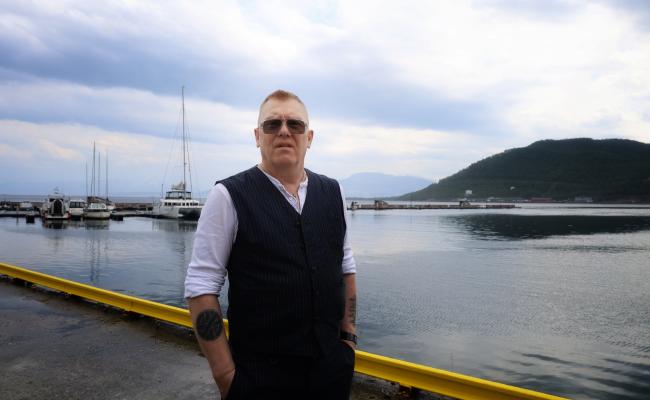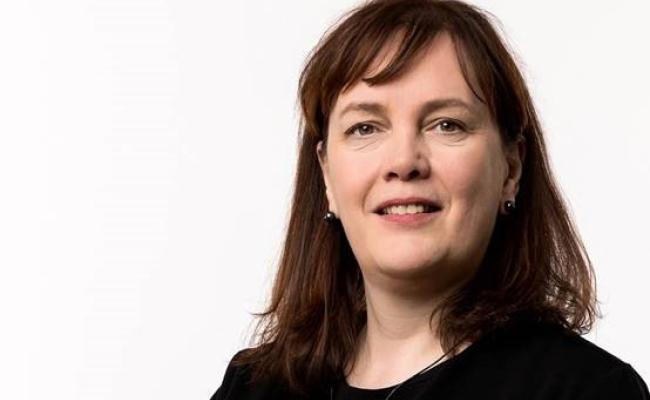Renewal of the Research Agreement Between Northern Norway and Iceland
President Guðni Thorlacius Jóhannesson of Iceland shows Haakon, Crown Prince of Norway, the volcanic eruption at the foot of Fagradalsfjall in Iceland. The Crown Prince is in Iceland in connection with the Arctic Circle conference and to witness the signing of a new collaboration agreement between Norway and Iceland. (Photo: Trine Jonassen).
During the international Arctic Circle conference in Iceland, Norway and Iceland signed a renewal of the letter of intent for Arctic research collaboration that was entered into in 2012.
On Thursday, the State Secretary for the Norwegian Ministry of Foreign Affairs Eivind Vad Petersson (Labor), and the State Secretary for the Icelandic Ministry for Foreign Affairs Martin Eyjólfsson, signed a renewed letter of intent (MoU) for Arctic research collaboration.
The agreement will be valid for four years, until 2026.
The signing took place during the yearly Arctic Circle conference in Reykjavik, Iceland.
Norway's Crown Prince Haakon was also present, who is in Iceland to open the Arctic Circle conference and to witness the signing – and not least to mark the good neighborliness between Norway and Iceland.
Anniversary
The first agreement between the countries was signed in 2011 and the collaboration started in 2012. The new agreement, therefore, marks ten years of collaboration.
The first letter of intent was signed by the then Minister of Foreign Affairs of Norway, now Prime Minister, Jonas Gahr Støre (Labor).
"We must also find ways to create jobs, educate people, and provide opportunities for future generations. In this process, it is important that we listen to indigenous people and to the youth in the Arctic," said Crown Prince Haakon during a breakfast hosted by the Norwegian embassy in Iceland.
"The Nordic countries are already working closely on these issues. There is also potential to expand the Norwegian-Icelandic collaboration on research, green and blue technology, and sustainable management of the oceans," adds the Crown Prince, and points to the Icelandic-Norwegian agreement on Arctic research collaboration.
"This shows our long-term commitment to strengthening the cooperation between Icelandic and Norwegian researchers and it carries on the Nansen professorship at the University of Akureyri. This is just one of many ways we can work together to achieve our goals," concludes Crown Prince Haakon.
Sharing challenges
The letter of intent facilitates for Icelandic and Norwegian researchers to apply for funding for Arctic collaboration projects. In addition, the arrangement with a Nansen visiting professorship in Arctic Studies at the University in Akureyri will be continued.
Rector of the University of Akureyri, Eyjólfur Guðmundsson, says that Norway and Iceland share many of the same challenges, including the conflict between the north and the south and the wealth of natural resources in sparsely populated areas.
"We have challenges with the climate and the economy, but we live well. Not least because of the educational opportunities we share and the fact that we are rich in natural resources," says Guðmundsson.
The cold will be the new hot.
The North/South problem
Guðmundsson states that the reason why this collaboration is so important is that there is a big obstacle between Northern Norway and Iceland. A gap, one might say.
"It is only 1600 kilometers from Reykjavik to Tromsø. And it is only 1150 kilometers from Tromsø to Oslo. So it should be just a two-hour flight from Tromsø to Reykjavik. Still, it takes us at least a day to travel. So the journey is expensive because we have to go through the south to get to the north. This exchange agreement will help us get over the hurdle," says Guðmundsson.
The rector believes that this agreement forms the basis for the sharing of unique knowledge that will apply for many years to come.
"The cold will be the new hot," predicts the rector about the next ten to twenty years, and uses the opportunity to thank Norwegian and Icelandic authorities for continuing the collaboration and considering it important.
The research collaboration, which has been ongoing since 2012, has produced many good results. Up until now, support has been given to 100 collaboration projects, mainly within the natural sciences with climate change, weather conditions, and the environment.
Rasmus Gjedssø Bertelsen at UiT The Arctic University of Norway was selected as Nansen Professor in Arctic Studies for 2022-2023 at the University of Akureyri. He is the sixth Nansen professor.
Also read
This article was originally published in Norwegian and has been translated by Birgitte Annie Molid Martinussen.



